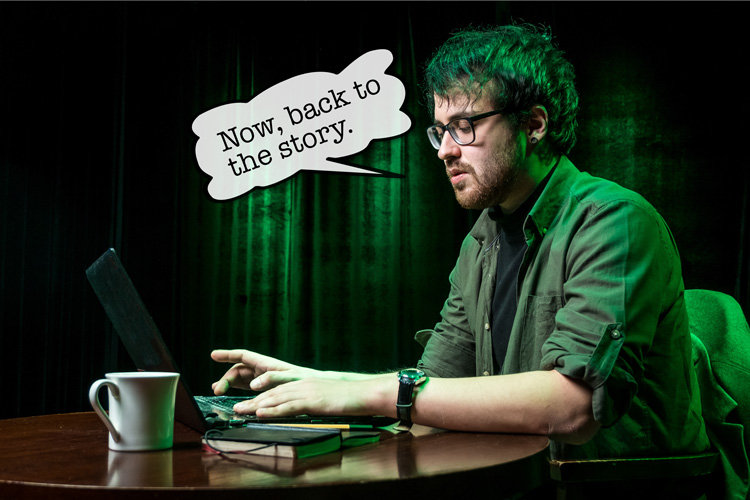
Back to the Story
/
0 Comments
What defines "good" writing when it comes to a story? That's a question I have to ask time and again as I'm judging contest entries.

Avoiding Cliché Openings
Many years ago, Damon Knight, a fine writer and editor, wrote a book on how to write short fiction. Damon talked a bit about avoiding clichés.

The Problem of the “Told” Story
I have talked about some of the most frequent problems that I see when judging for the Writers of the Future Contest, and today I’m going to tackle one of the biggest: the problem with “told” stories.

Your First Five Pages
A writer pointed out today that when you send a novel to an agent or publisher, they normally ask for the first five or ten pages, just so that they can gauge your writing skill. If those pages don’t grab the reader, it won’t sell. So, he wondered, what do I look for in those first five pages?

“Boosting” Your Prose
I earlier mentioned that when I used to write for competitions, I would make lists of ways that judges might look at my work in order to grade it. For example, some judges might look for an ending that brought them to tears, while another might be more interested in an intellectual feast. A couple of you asked what my list might look like. So here is a list of things that I might consider in creating a piece.

Are We at the End of Science Fiction?
In 2006, Writers of the Future judge Orson Scott Card addressed a very simple if not vital question which was published in Writers of the Future Volume 22.
These aren’t the best of times for science fiction.

Multidimensionality: The Value of Subplots
Very often when reading slush for the Writers of the Future contest, I come upon stories that at first glance seem to be perfectly acceptable. They presented a protagonist who had a problem to overcome. The setting was reasonably well defined. The story proceeded at a good pace, with the problem escalating nicely. Often there was a surprise twist at the ending, and the conclusion seemed appropriate. Yet when I got done reading the story, it just lacked ... something.

The Fine Distinction Between Cooks and Chefs
A lot of people want to give you writing advice. I’ve felt it—trust me, I’ve been there. During my long years trying to break in as a writer, I felt that I never lacked for someone jumping in to tell me how this writing thing had to be done.

Parts to a Story – From the inciting incident to the denouement
I earlier talked about the first four parts of a story—setting,…

Grounding Your Reader
One reader asked me to discuss a bit about what I call “grounding” the reader. Quite simply, grounding is the fine art of letting the reader know what is going on. You need to focus on some basics...
